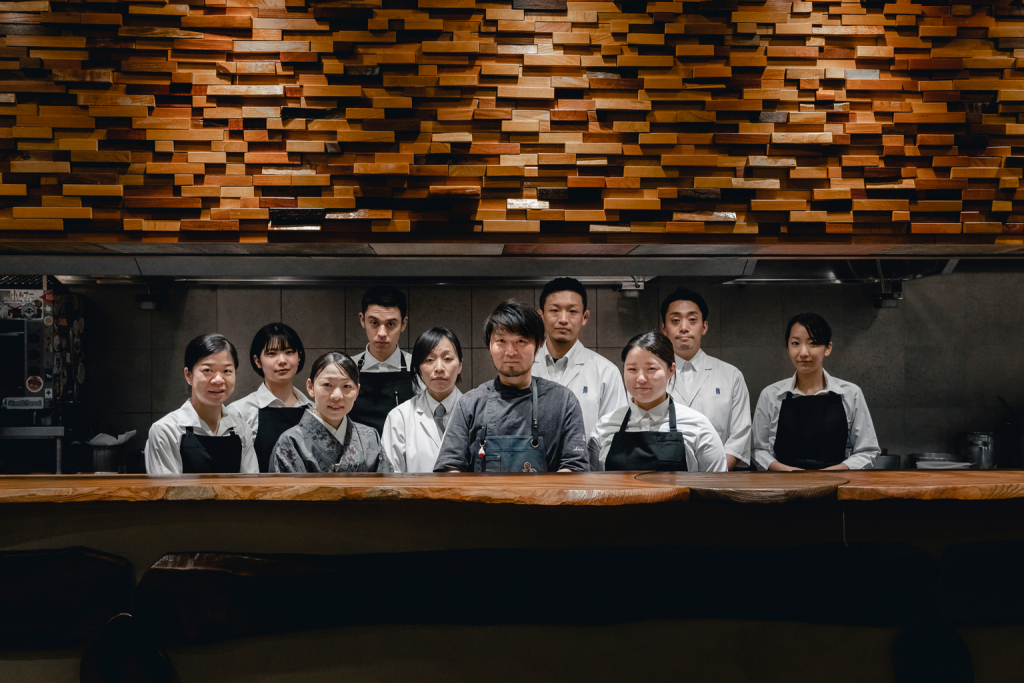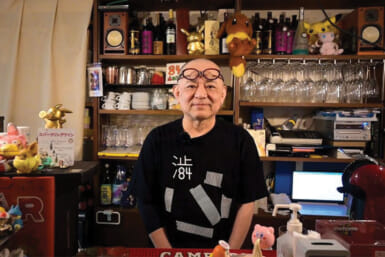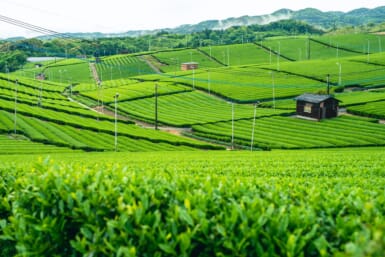Chef Zaiyu Hasegawa’s Den, a contemporary restaurant serving au courant kaiseki dishes in Jingumae, received the ultimate accolade of being designated Asia’s Best Restaurant by the World’s 50 Best group in 2022. The last time Japan topped this list was in 2013, when Narisawa triumphed.
Dining at Den is like being invited to Hasegawa and his wife and colleague Emi’s home for a luxurious dinner party. The hosts serve delightful cuisine, thoughtful service and a cheerful atmosphere. Repeat guests are welcomed back with an okaerinasai, an acknowledgment of family members returning home.
Hasegawa’s mother, a former geisha, would bring home delicious omiyage from high-end ryotei (traditional Japanese restaurants) and from a young age he was hooked on sharing delectable food with others. That is his modus operandi — to create food that generates smiles.
Kimono-clad Emi, the okami-san (proprietress) of Den, oversees details to create an inviting setting with seasonal flowers and thoughtful touches throughout the meal. The hospitality is based on her own training at a ryotei.
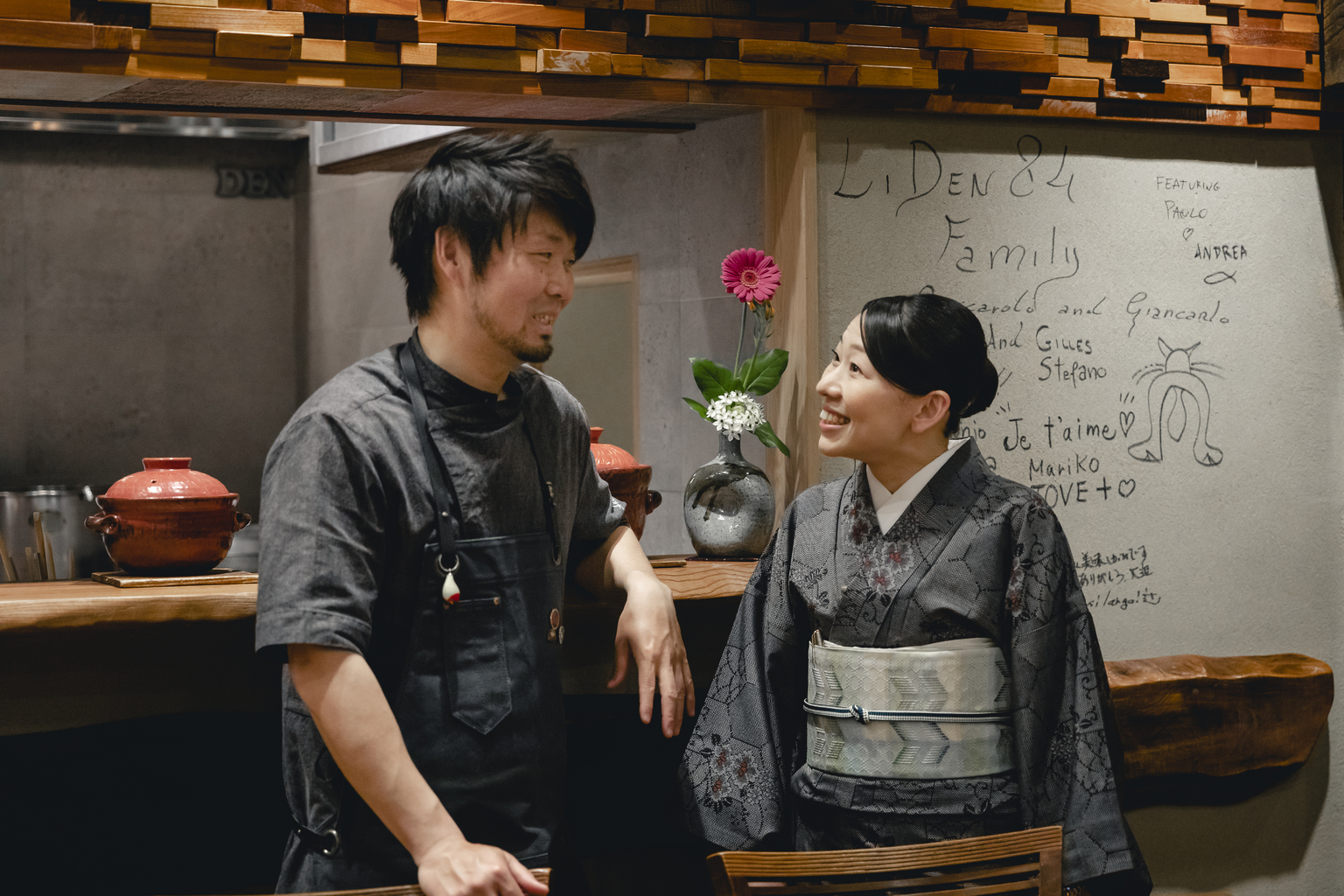
Photo by Anna Petek
The ultimate hosts are always thinking about how they can make a diner happy, such as including a miniature flag from their home country when serving a dish. Den was awarded Best Service in Asia in 2017 and the Art of Hospitality award in 2019, coming again from the World’s 50 Best group.
There are palpable positive vibes at Den. The staff enjoy working there and it’s difficult not to be swept up in the infectious energy. Hasegawa has said, previously, that dining at Den is about the food and the service. Den-style hospitality comes from the heart.
The chef’s Instagram bio says it all: “It’s cooking to make happiness for people around the world.”
Den’s owner and chef — and acclaimed cookbook author — Hasegawa sat down with TW to discuss the restaurant and his culinary philosophy.
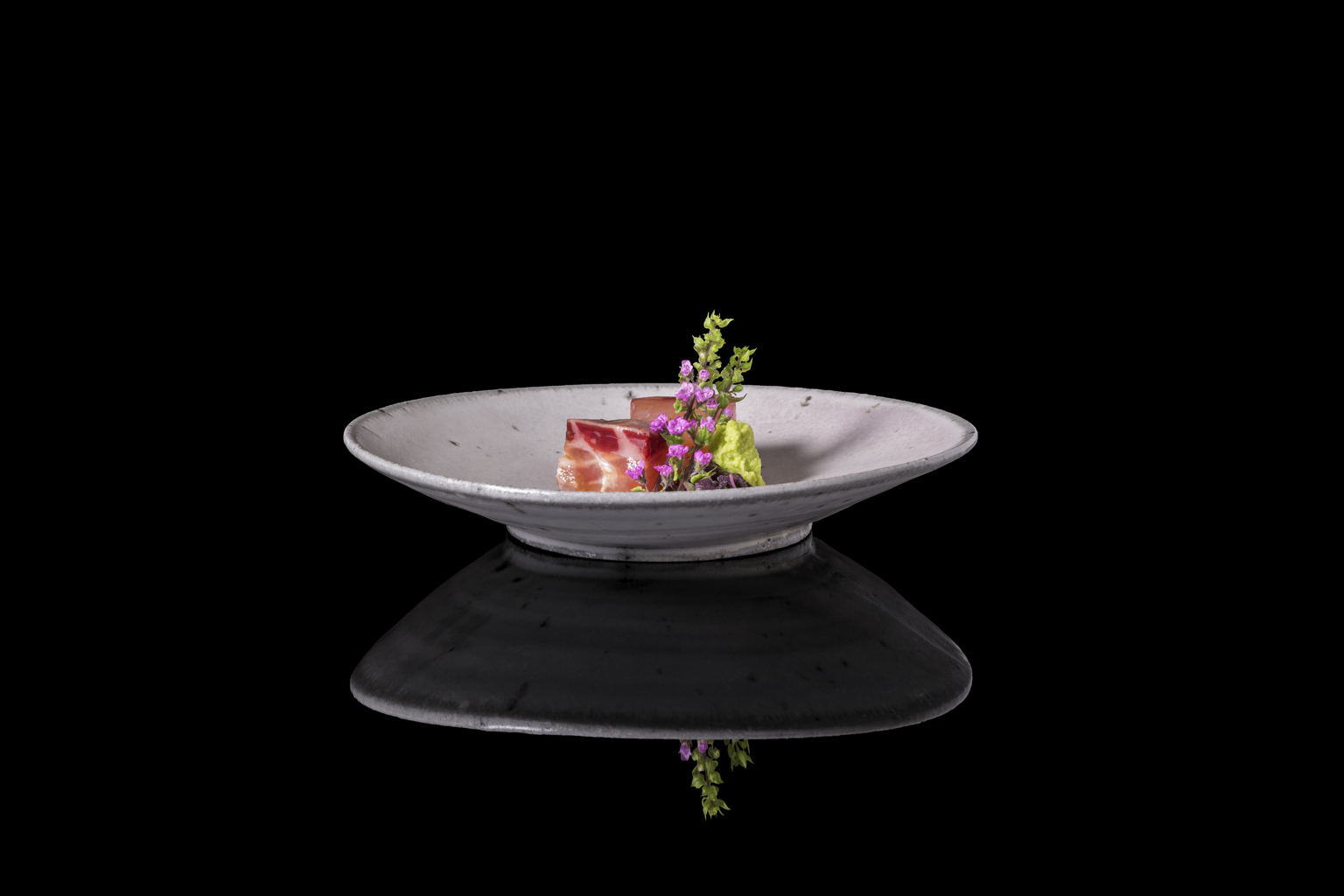
What does it mean to you to be named the best restaurant in Asia?
This award recognizes not only the cuisine but also the service. This includes the Team Den staff and our diners who help to make the atmosphere happy at Den. I believe this award also includes our guests, who are like family.
How do you define the cuisine at Den?
The menu is based on traditional kaiseki. I learned this while apprenticing at Kagurazaka Uotoku, which opened in 1920. I put a modern twist on it. For example, instead of white rice we serve takikomi gohan — rice cooked with ingredients like wagyu beef and burdock root. Our signature salad with vegetables, that is prepared in different ways such as raw, pickled, simmered and fried, is a playful version of the takiawase course.
To put our guests at ease, we serve two signature dishes that can be eaten by hand. To start the meal, a monaka wafer is stuffed with foie gras and a Japanese pickle. Later in the meal we serve Dentucky Fried Chicken, a deep-fried chicken wing dumpling.
Why did you move from Kanda-Jimbocho to Jingumae?
Den opened in 2007 in Jimbocho and moved to Jingumae in 2016. The original restaurant had private rooms on the second floor. Part of the reason for moving to the new location was to see our diners from the open kitchen. We can better serve our guests if we can observe them during the meal.
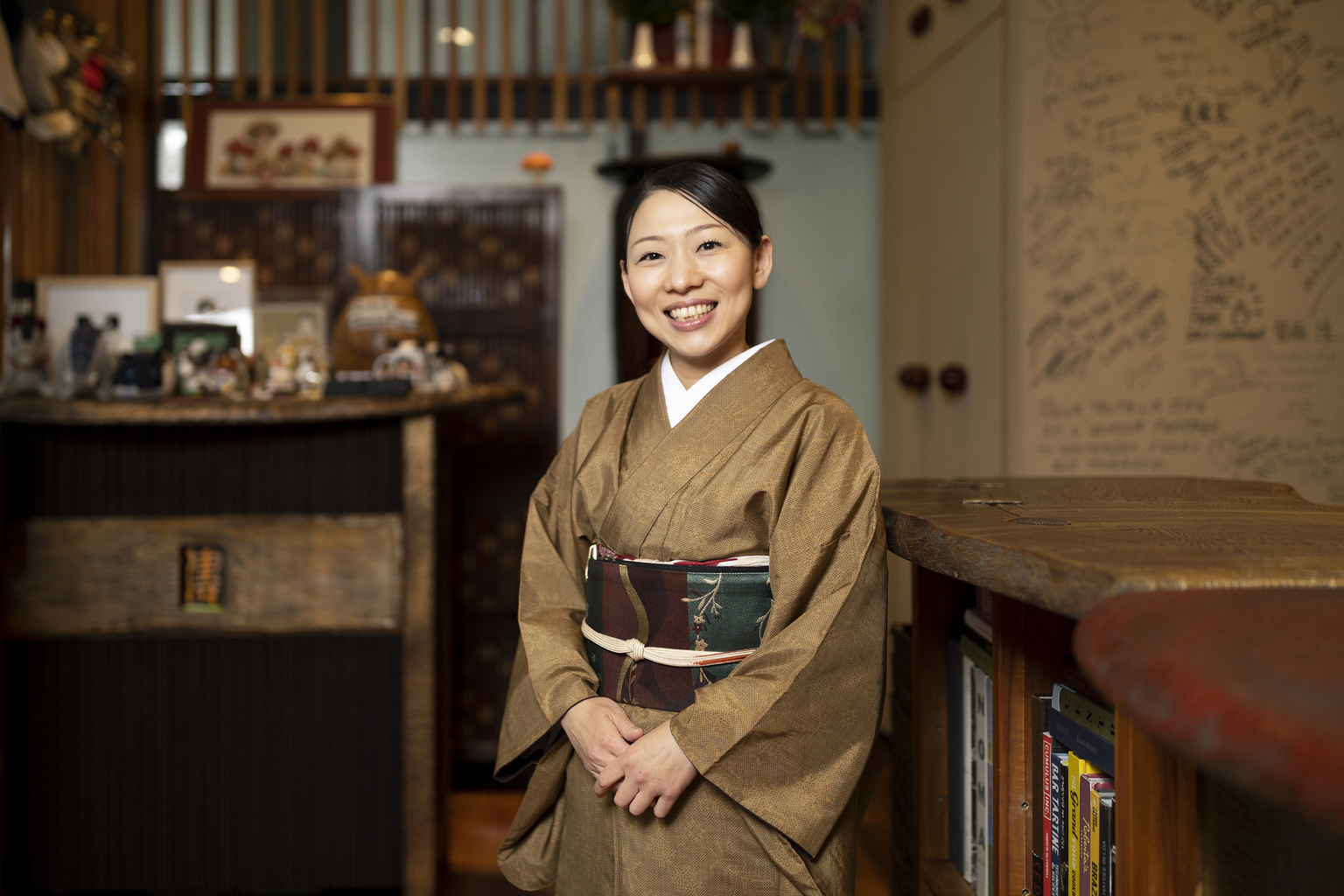
How important is service and attention to detail at Den?
From the time the customer makes the reservation, Emi and her team take attentive notes on the guest, where they are from, or if they are celebrating a special occasion. We may pour sake from their hometown or include a handwritten note celebrating their birthday or anniversary. Emi’s team prepares oshibori hand towels in-house, lightly scenting it with natural wood essence that helps diners relax. The towels are presented three times throughout the meal.
Emi’s brother is deaf and she grew up carefully observing those around her. During the meal Emi watches the guests and if they are cold she will adjust the temperature. If a guest is not eating a lot, perhaps they had a big lunch, we will serve smaller portions to make them comfortable. After the guests leave, Emi will update the client’s file, for example noting if someone is left-handed so that when they return the chopsticks can be placed the correct way.
In our pre-meal staff meetings we explain to the kitchen staff who are dining in the restaurant that evening so they know who they are cooking for. If overseas guests are dining at Den on the first night of their travels, the meal is often served quickly for those dealing with jet lag. If the meal is towards the end of their time in Japan the meal is slowed down to let them linger.
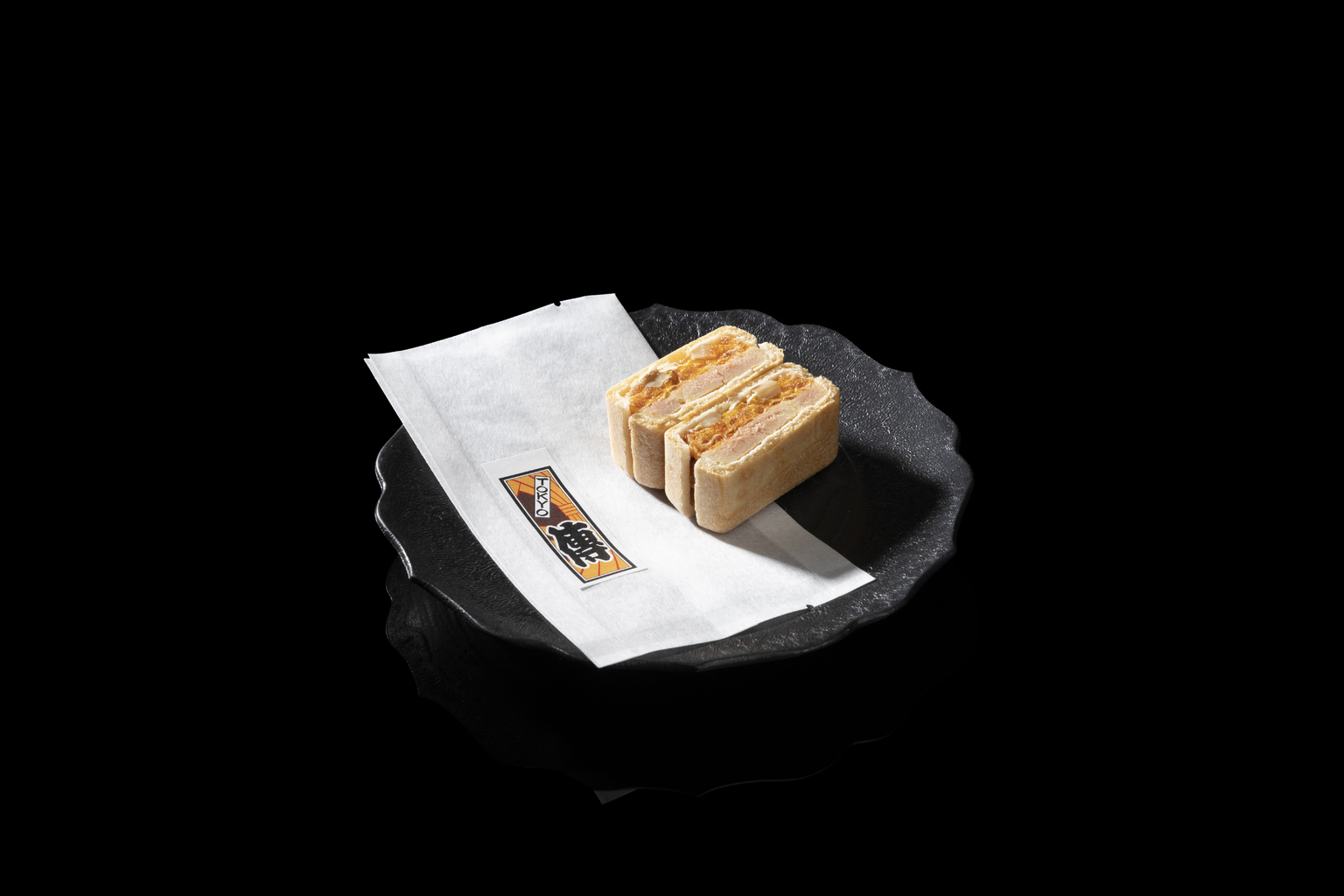
You recently opened Den Kushi Flori in Omotesando with chef Hiroyasu Kawate of Florilège. What else do you have coming up?
I am excited to work with chef Leonor Espinosa of Leo in Bogota, Columbia in November. Recently, I worked with chef Yusuke Takada of La Cime in Osaka. In April, chef Goh Fukuyama of La Maison de la Nature Goh will come to Tokyo for a collaboration.
One of the hardships of the pandemic has been the inability to travel freely and work with chefs. Being in the kitchen with other chefs and exploring the ingredients of other countries is a source of inspiration. I often have chefs from overseas apprentice in my kitchen but sadly not now with the borders closed.
How has your restaurant been affected by the borders being closed?
We have remained open throughout the pandemic. Luckily, Tokyo never went into a proper lockdown. We have removed some chairs to create some distance between seats so that our guests can feel safe about dining here.
Because of the pandemic everyone is feeling a bit down. Also, with the war in Ukraine there is so much hardship around the world. We hope to make Den a place where diners can relax and enjoy a meal. We try to keep our conversations with guests positive and create an environment where everyone can have fun. And we hope that diners leave Den feeling good and recharged.
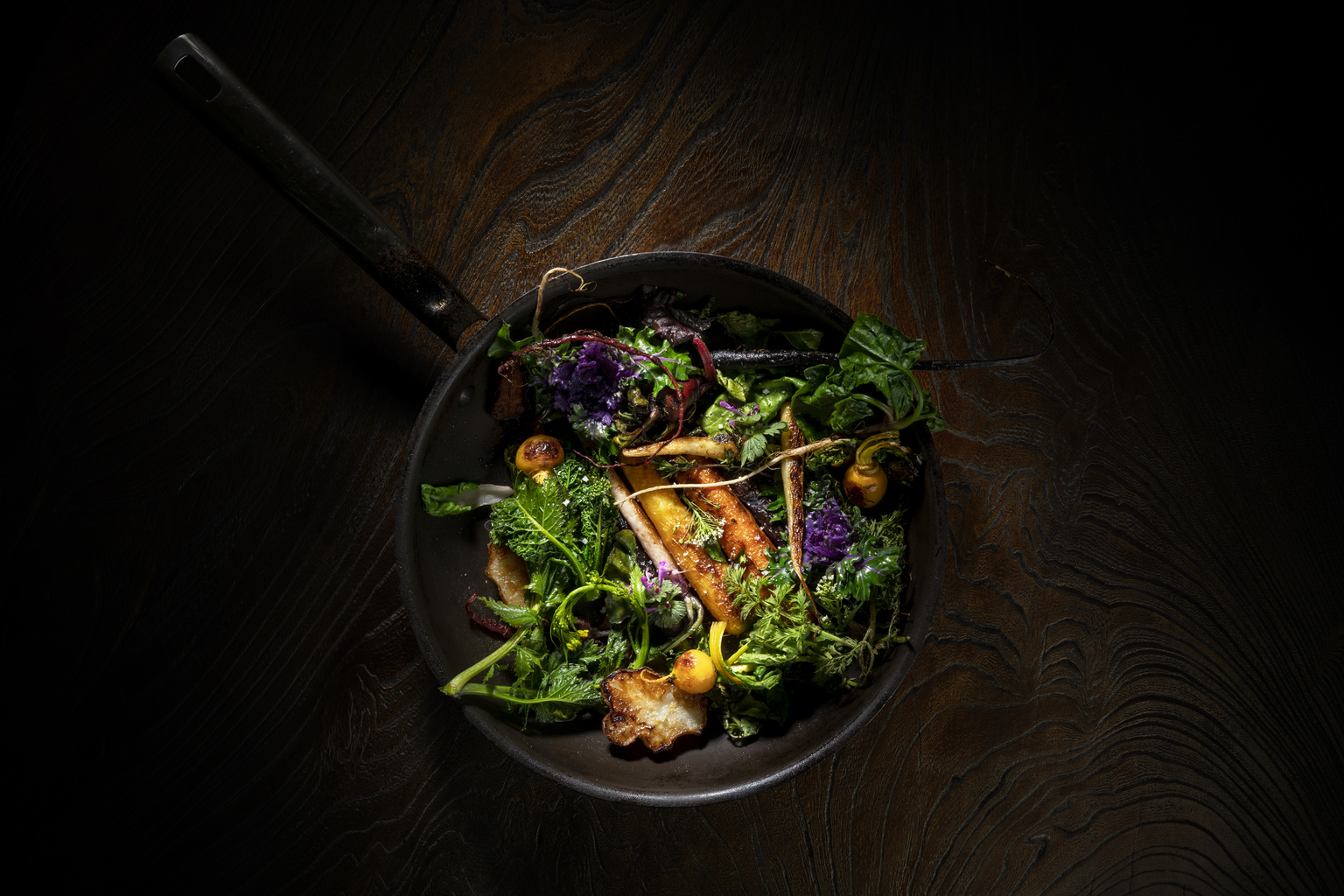
What are the differences between your first bilingual cookbook, Den: The Evolving Tokyo-Japanese Cuisine and your newest, Fudangi no Washoku ga Oishii Riyu?
My latest book is a collection of essays and recipes from makanai (staff meals) at our restaurant that we serve twice a day. My first cookbook, essentially, shares recipes from Den. This new one, however, is filled with home-style dishes that can be quickly assembled with ingredients found in most Japanese homes. I am always cooking to make the diner happy, and of course that includes Team Den.
Are you involved in any Sustainable Development Goals?
One of our customers is the principal of a junior high school in Shinagawa. He asked me if I could work with the students regarding sustainability and food loss. We have been meeting with students to discuss repurposing food scraps. I am impressed with their energy and ideas such as making chips or juice from food that would typically be discarded.
Anything you would like to add?
Because of the pandemic I feel that we should treasure who we spend our time with and how we spend it. We should make the most out of our time on Earth. We should be kinder and treasure one another. Guests come to Den to dine and we hope that in our time together that we can help them to feel happy and to be cheerful in these trying times.

